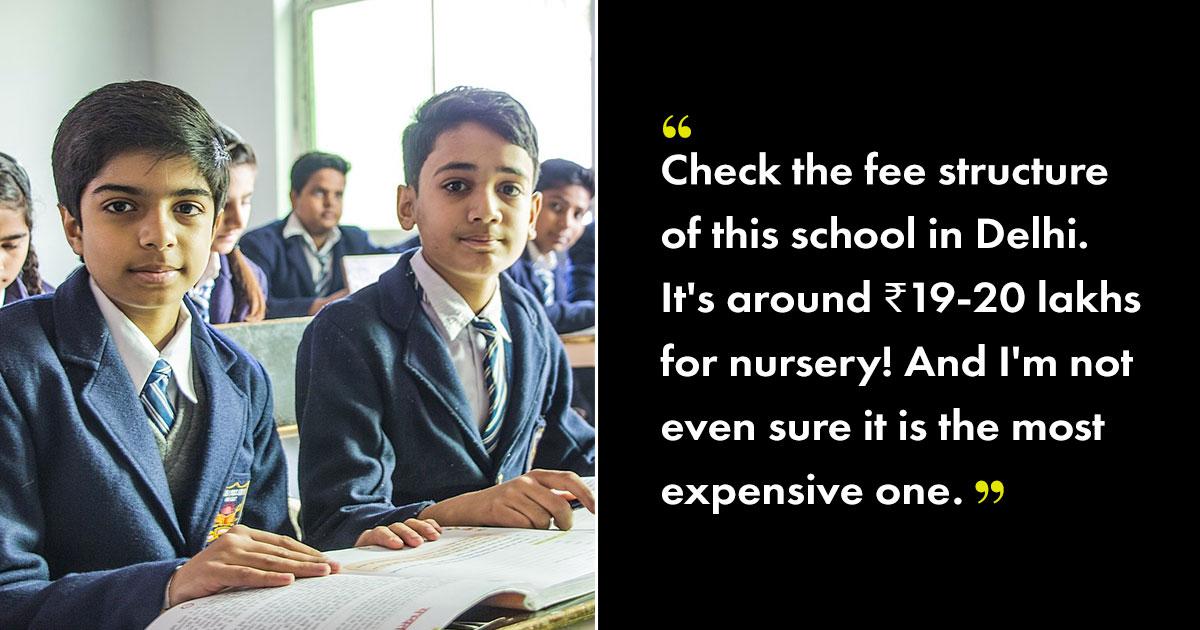The Indian education system doesn’t believe in the expression of opinions, exploring imagination and emerging curiosity. For us, education is: “Listen to your elders.” Doesn’t matter if your elders are wrong, prejudiced, or outright abusing you. “Listen to your elders.” You’ll find a lot of the anecdotes below are from my own educational experience. From the bottom of my heart, I hope yours was different.
1. Slut shaming
When I was twelve years old, one fine day it began raining. Like any other child my age on the face of this earth, I wanted to get drenched in the rain. My friends and I stepped out to the school playground, had a blast rolling in the mud, and ended the day with a tight slap across the face. A teacher accused us of enticing the men around us with our uniforms which were now transparent and outlining the shape of our bras. We were 12. I wish this were an isolated incident, and I wish this only happened to me. But no, this is a recurring theme across schools all over India. Young girls are unfairly sexualized by their school personnel, the lengths of their skirts questioned and their bodies policed. No one stops for a second to question: Why are the men eyeing minors with a perverse gaze?

2. Classism
Kids who can speak fluent English and have an army of servants to polish their shoes, iron their uniforms, fix their collars and dress them to the nines are hailed as the epitome of “good students,” while those less fortunate with both working parents struggling to ration their time between work and family are demeaned for being “unkempt” and “filthy.” Not just that, private schools fail to understand that not everyone can afford fancy school trips and expensive art supplies. If you fail to come up with the money, you are publicly shamed.

3. Public humiliation
Speaking of public humiliation, do teachers really think putting a child on the spot in front of their peers is a positive form of reinforcement? I think it is an intentional, sadistic release of workplace frustration and personal bias by exploiting individual authority over those vulnerable. Not only is it unethical, but it also strips off a child’s human dignity and can lead to mental health problems such as anxiety, depression and aggression. If you ostracize a minor for the length of her skirt in an open assembly and yell, “This is why women get raped on the streets,” the trauma will haunt her forever. Speaking from experience.

4. Unhealthy competition
Private schools have a culture of minimising solidarity among the students. Often, by authorities pitting them against each other. After all, should they unite, they might raise their voices against the injustices inflicted by the administration 🙂

5. A culture of heteronormativity
Schools across the nation maintain a strict heteronormative structure and queer identities are suppressed. LGBTQ+ students are compelled to undergo heavy counselling and psychological torment as a result of discrimination and overt expression of internalised homophobia by teachers. Little to no effort is invested to educate their peers which results in a cycle of bullying that often goes unreported or unpunished.

6. Corporal punishment
And no, I will not have boomers swoop in and say “Kids these days are spoilt because they weren’t hit by their teachers.” It was wrong then, and it is wrong now. Violence is never the answer.

7. Casteism
From low accessibility to educational institutions and discrimination in the admission process to unfair treatment in classes and undue peer pressure based on caste identities, casteism thrives in schools across India. Yes, even so called “elite schools.” Lower caste members are viewed by an upper caste gaze embedded in inherent superiority and treated as an outgroup, an exception to the norm. Caste-based slurs go unchecked and reservation is treated as a privilege.

8. Elitism
Significantly hiking fee structures and investing money in advertising and marketing, while children struggle to afford fundamental education is the laughable reality of the entire private education system. A student who fails to meet the raising cost requirements due to financial burdens is cast out and denied access to the very school they once called their own home. Private schools will perform poverty porn in the name of charity, yet deny those same underprivileged kids access to their resources.

9. Treating learning disabilites as a joke.
The entire plotline of Taare Zameen Par continues to be a reality for many young kids trapped within the confines of the Indian education system. Except there is no Amir Khan to save them. Children suffering from learning disabilities and mental health issues are met with stigma. Teachers are untrained in the markers of fundamental illnesses such as Dyslexia or ADHD and label those affected as dumb and lazy, often resorting to ridicule and degradation.

The alarming suicide rates amongst children should be sign enough that our education system needs a total revamp.

















